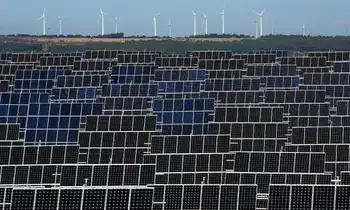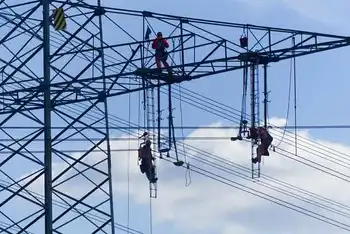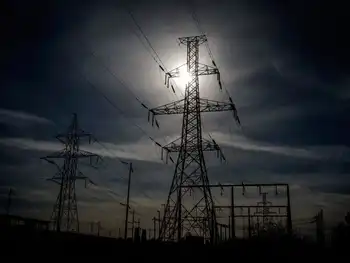Alternative solar products cut power bills
With the costs of electricity rising, and environmental concerns about energy sources prompting concern, solar energy is becoming a popular alternative. After all, the fuel is free, and inexhaustible.
You are probably already familiar with solar pool heaters, due to the abundance of pools and sunshine that we enjoy here in Southwest Florida, but solar energy products are being used for more and more reasons, such as for attic fans, to solar tubes (for lighting), to water heaters, to garden lights, all of which are readily available and cost-effective.
Many solar products are comparable in purchase price as electric products, and the cost savings on electricity can be significant.
Some solar alternatives are downright simple to install, such as solar pathway/garden lights that can be found at local home improvement stores, including Home Depot.
"After purchase, they are free run, and there's no wiring with the installation," says Richard Peppin, head of the Lighting Department at the Cape Coral Home Depot on Skyline Boulevard.
"Even during overcast days, there is enough sunlight coming through that you can count on the lights to light up that evening," says Peppin, who explains that they go off at dusk and go on in the morning.
Also available are outdoor carriage lights that have built-in solar panels. "They work as an extra security light, and people can place them in spots where there is no electricity available," says Peppin.
Garden lights start at $49 for a package of three, carriage lights start at $19.97, and outdoor security lights start at $79.99.
Two stores in Southwest Florida, The Flower Basket at 1516 Royal Palm Square Blvd. in Fort Myers and The Planted Pot at 16121 Old 41 N. in Naples sell Allsop Home & Garden products, which include garden tools, solar outdoor lanterns, solar string lights and additional solar garden decor.
The company, based in Ketchum, Idaho, also sells products through its Web site, www.allsopgarden.com.
"All of our solar-powered products are designed for outdoor use. The solar panels need to be in direct sunlight for at least four hours a day," said Siobhan Sutton, sales and marketing associate for Allsop Home & Garden.
"All solar products are designed with a light sensor so that once it becomes dusk out, the lights turn on by themselves and will glow for as long as the charge lasts."
The Firefly, the company's popular solar garden art, generally retails for $44.99, Siobhan said in an e-mail. This includes the stainless steel planting stake, solar unit, LED light, rechargeable batteries and the artisan hand-blown glass top, which comes in several colors.
The Firefly line has a variety of hand-blown glass tops that are in fact interchangeable with each other, and the tops are sold independently if desired. Alone, the tops retail for $15.99.
Inside, homeowners can add more light with Tubular Skylights that you can find at places like Fafco Solar, which has been installing solar equipment for 34 years. Tubular Skylights are less expensive, easier to install, and more weather-tight than conventional skylights.
"The lights let in no heat, only light. They are ideal for any dark spaces," says Marca Brown, Office Manager of Fafco Solar in Cape Coral. The lights work so well and are so cost-effective that Fafco Solar staffers have installed 21 tubular skylights in their offices, allowing employees to work without electrical lights almost all day long.
Tubular Skylights start around $400 each with installation, and offer optional fan and night light kits.
Attic fans and water heaters are also available as solar products. Attic fans are important because they lower attic temperature, which in turn reduces the load on your HVAC system, and offer a longer life for your roof.
"Solar exhaust fans use a small photovoltaic panel to supply electricity to the motor. Once the sun is up, the motor is running. It is much more kind on all of your attic components, especially your roof, to operate at 95 degrees instead of the 130-140 degrees that attics in Southwest Florida can reach," says Brown.
Attic fans start around $500 including installation.
A good solar water heater can save you more than 50 percent in hot water heating costs, not to mention there are state and federal tax incentives for renewable energy on solar water heaters. See information about the Energy Policy Act of 2005 below.
"While the upfront cost for solar may be more than electric, the return on investment is somewhere between two to three years, depending on the size of your home and household. We can customize the system to fit your needs," says Brown, who says that Fafco Solar offers a system that will work with your existing water heater. The panels go on the roof, much like the solar pool heat.
Price varies according to type of system and household needs.
When considering a pool heater, you should consider solar. The upfront costs of installing either a gas or electric heat pump are comparable to a solar system, but once the system is installed, it costs nothing to run.
"A heat pump can cost you up to $400 extra electrical a month, depending on the current climate, and the temperature you keep the pool," says Brown, who adds that Fafco offers pool covers and automatic solar controllers can increase their effectiveness.
"With a solar pool heating system, you can typically expect 10 to 12 degrees above (Gulf of Mexico) temperature."
Related News

Spain plans switch to 100% renewable electricity by 2050
MADRID - Spain has launched an ambitious plan to switch its electricity system entirely to renewable sources by 2050 and completely decarbonise its economy soon after.
By mid-century greenhouse gas emissions would be slashed by 90% from 1990 levels under Spain’s draft climate change and energy transition law.
To do this, the country’s social democratic government is committing to installing at least 3,000MW of wind and solar power capacity every year in the next 10 years ahead.
New licences for fossil fuel drills, hydrocarbon exploitation and fracking wells, will be banned, and a fifth of the state budget will be reserved for measures that can mitigate…





